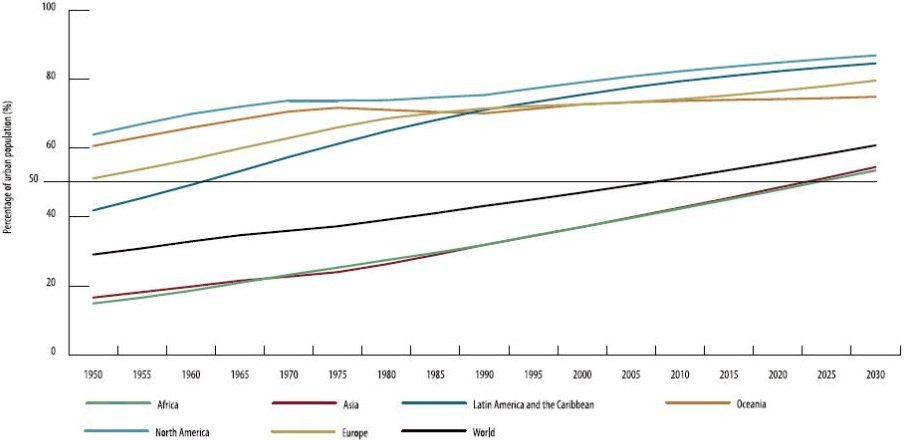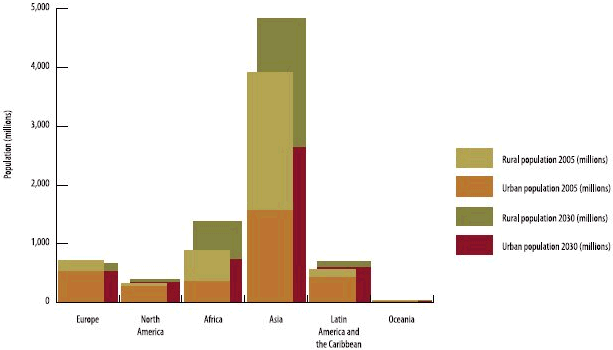Urbanisation - some Definitions
Urbanisation means the increased concentration of people in urban areas rather than in rural ones. Worldwide urbanisation has grown rapidly in the last 50 years. In 2005, the world's urban population was 3.17 billion out of a world total of 6.45 billion and if the growth keeps as fast as predicted, it will reach almost 5 billion by 2030 out of a world total of 8.1 billion (UN-HABITAT 2001).
- Urbanisation: The increase in the proportion of the total population that lives in urban areas
- Urban growth: The increase in the proportion of towns and cities
- Urbanism: The extension of the social and behavioural characteristics of urban living across society as a whole (Pacione 2001).
Since 1800, the percentage of the world's population living in urban areas has increased from 3% to more than 50%. Until recently, urban growth was associated with development, but in the past two decades, the world's largest cities have increasingly been located in developing countries (Renwick, Rubenstein 1995).

Source: UN-HABITAT
Urbanisation is also a spatial process including land use change and land consumption through building infrastructure and the growth of built up areas. Environmental pollution and threats are increasing (Weidner 2002).
Urbanisation can be defined quantitatively as the expansion, increase, and extension of cities in number, area, and inhabitants. The scale of urbanisation is measured by the urbanisation rate which means the size of urban population in relation to the total population.
On a qualitative level urbanisation means the following:
- Physiognomic urbanisation: an expansion of urban forms and facilities of living, increasing urban land use forms in rural areas
- Functional urbanisation: an expansion of urban production and distribution, linkage of rural and urban areas through commuter movements, expansion of the tertiary sector through building new sites in rural areas, development of new communication and information networks
- Sociological urbanisation: an assimilation of the rural population towards urban norms and values, in terms of family structure, forms of work, household management and consumer culture (Bauer et al. 2005)

Source: UN-HABITAT
Task: 1. Using the statistics, describe the process of urbanisation on a. global and b. regional scales.
